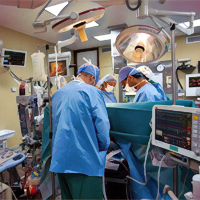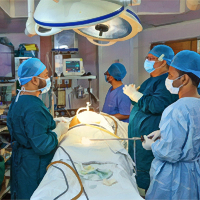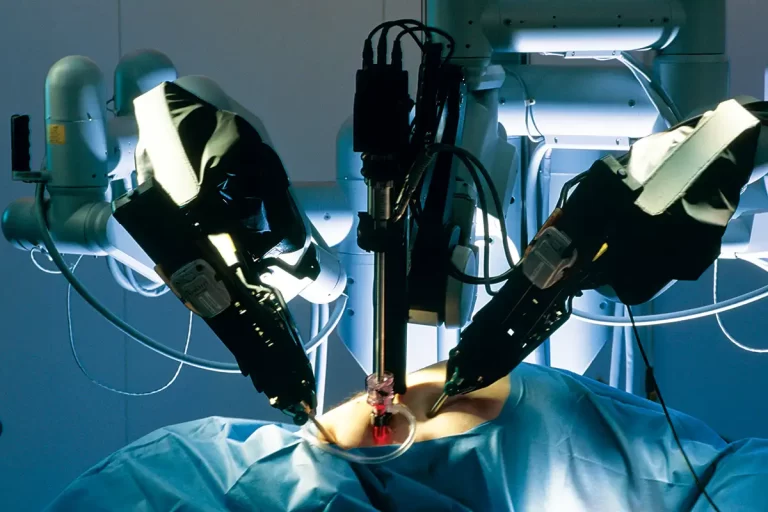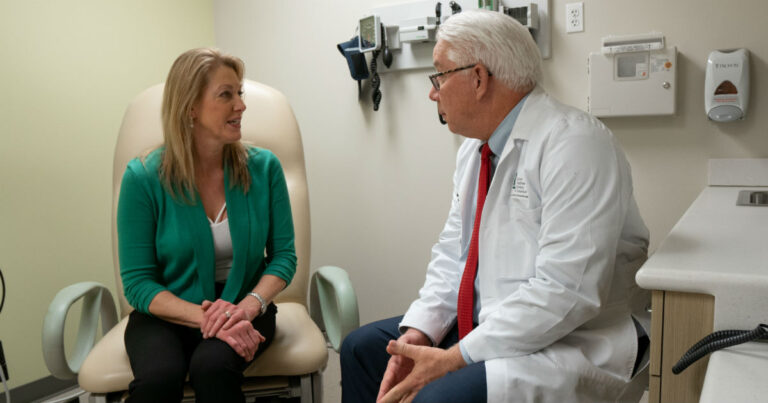
Oncology
Robotics
Endometriosis
Laparoscopy
Pankaj Singhal, MD, MS, MHCM
Oncology and Robotic Surgeon in Bay Shore and New York, NY
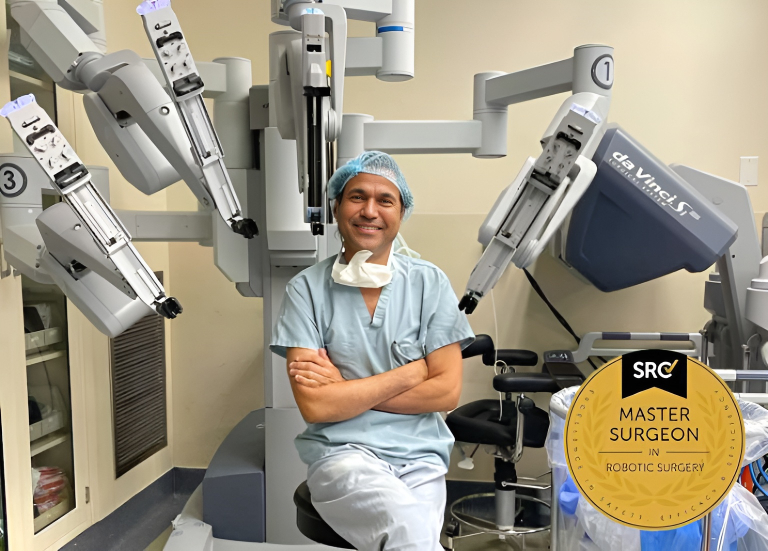
A Leader In The Field of Oncology And Minimally Invasive Gynecologic Surgery
An experienced healthcare professional with expertise in women’s health, gynecologic cancer, healthcare management, and an MBA in finance.
- Industry expertise with over 12 years of experience in both academic & private health care settings, physician practice management and executive leadership.
- Consistent track record as executive leader and proven ability to excel in complex and dynamic multi-faceted healthcare settings.
- Effective at identifying opportunities for significant value creation (economical, educational, market share and societal). Launched new ACGME fellowship programs, expanded residency programs, launched new system level service lines, expanded clinical market share by 200%, developed physician score cards.
- Proven track record as quality improvement champion, challenges status quo and removes inefficiencies in the system. Developed system wide score cards-OB/GYN, MFM, Gyn Onc, standardized orders sets, consents forms, transfer policies. Improved physician compliance with quality measures.
- Performed over 10,000 robotic gynecologic, endometriosis, and cancer surgeries.
- Known for taking on the most challenging surgery cases that other doctors/centers turn away.
Most Complex Robotic Endometriosis Cases
Bowel, bladder, ureters, nerves are managed by us.
Endometriosis is not cancer but grows like one.
Being a cancer surgeon allows me to resect endometriosis with unparallel precision.
Our Competitive Edge
Our mission when we opened in 2010 was to offer all-encompassing, accessible, high-quality, and affordable treatment options that would enhance the quality of life for numerous individuals. Despite encountering several challenges, we have persevered and continue to enhance our services to shape the future of medicine.
Skills and Knowledge
Our years of experience have equipped us with specialized knowledge to accurately diagnose a patient’s condition. We possess excellent listening skills, which enable us to comprehend your concerns and perform the surgery with absolute confidence.
Accessibility
Our conviction is that every individual, regardless of their social status, deserves the fundamental right to a long life. Unlike many clinics that limit treatment options based on financial limitations, we welcome all. We believe that genuine success can only be achieved by helping everyone.
Quality
With more than a century of collective surgical experience, we have rescued over 20,000 lives, deliver talks on enhancing treatment outcomes worldwide, and head a team committed to developing a customized treatment approach that centers on YOU.
Our Treatments
At our doctor’s office, we provide a comprehensive range of treatments to guarantee that all individuals have access to the care they require. Whether you need Gynecology Surgery, Gynecology Oncology, Robotic Surgery, Laparoscopy, or any other treatment, our team of healthcare providers, possessing a combined surgical expertise and innovation of over 100 years, will oversee your care.
Making Treatment and Surgery Affordable
Surgeries are typically covered by health insurance. However, the extent of coverage can vary depending on the specific insurance plan and policy. Some insurance plans may cover a broad range of surgical procedures, including both elective and necessary surgeries, while others may have limitations or exclusions for certain procedures.
In some cases, certain insurance plans or programs may fully cover the cost of surgery, leaving the patient with no financial responsibility.
Insurance
To help you maximize your benefits, we collaborate with numerous insurance companies with different health plans.
Treatment Pricing
We offer treatment prices that are extremely competitive. In case your insurance does not cover your treatment, we will explore alternatives to enable you to receive the care you require.
Hear From Our Clients

Joetta Simonette
On May 3, 2018 at Good Samarital Hospital, due to cancer, you performed ovarian surgery on me.
It is now 5 years since that date – 5 years of wellness that has been accomplished through the grace of God guiding your hands and the support of your team and my loving family.
You are an excellent, compassionate and caring doctor who was confident of a good outcome, and so it is!
Thank you, thank you for these past wonderful years. May God continue to bless you. You are in my prayers!

RG Petkos
Power couple Dr. Singhal & Dr. Mclean are amazing!! My experience with them has been absolutely wonderful. I highly recommend either of them for so many reasons mainly for helping me get back some quality of life with my successful full hysterectomy being better than I expected.
The process from the beginning with them was a pleasure and I had quite a challenge beforehand so I’m very grateful that quality, professional, caring doctors still exist!!
I especially appreciate their proactive approach and feel the combination of the care and expertise they provide make for successful outcomes!!

Kimberly Quinde
Dr. Singhal was the doctor who took care of my mother Ivonne Guevara. My mother had gone to 2 other doctors who refused to take care of her fibroid. She was in pain for years and her fibroid had grown really big without her knowing. When my mom went to Dr Singhal she was met with calmness and reassurance that everything will be ok and he would help her get better. Dr. Singhal was so kind and caring all throughout the process.
He took all her worries away and my mom highly recommends him. She hopes every doctor can be as great as Dr. Singhal.
Everyone in his office was so nice to my mom and it was a great experience given the circumstances.
Frequently Asked Questions
Millions of Americans undergo surgery each year. It’s vital for patients to be well-informed about the recommended procedure. Before deciding if the surgery is right for you, familiarize yourself with the risks and benefits that come with any surgery.
Gynecologic oncology surgery refers to surgical procedures performed to diagnose and treat cancers that affect the female reproductive system, including the ovaries, uterus, cervix, fallopian tubes, and vulva.
Robotic surgery in gynecologic oncology offers several advantages over traditional open surgery and even conventional laparoscopic procedures. Some of the key advantages include:
Precision and dexterity: Robotic surgical systems allow for greater precision and dexterity than traditional laparoscopic instruments. The robotic arms can mimic the movements of the surgeon’s hands with enhanced precision, making it easier to perform delicate and complex procedures.
3D visualization: Robotic systems provide high-definition, three-dimensional visualization of the surgical site, giving the surgeon a more detailed and immersive view. This enhanced visualization aids in identifying and navigating critical structures, reducing the risk of damage to healthy tissues.
Reduced invasiveness: Robotic surgery is minimally invasive, requiring only a few small incisions rather than a large abdominal opening. This results in less trauma to surrounding tissues, less blood loss, reduced pain, and faster recovery times for patients.
Shorter hospital stay: Due to the minimally invasive nature of robotic surgery, patients typically experience shorter hospital stays compared to open surgery. This helps in reducing healthcare costs and allows patients to return to their normal activities sooner.
Lower risk of infection: With smaller incisions and reduced tissue trauma, the risk of post-operative infections is generally lower compared to open surgery.
Less scarring: The smaller incisions used in robotic surgery lead to smaller scars, which are not only cosmetically beneficial but also reduce the risk of complications like hernias.
Improved patient outcomes: Studies have shown that robotic surgery in gynecologic oncology can lead to improved clinical outcomes, including reduced complications and better long-term results.
Surgeon ergonomics: Robotic systems are designed to improve the ergonomics for surgeons, reducing fatigue during lengthy procedures and potentially improving surgical outcomes.
Expandability and versatility: Robotic surgical platforms can be used for various gynecologic oncology procedures, making them versatile tools for different types of surgeries, such as hysterectomy, myomectomy, lymph node dissection, and complex tumor resections.
Common types of gynecologic oncology surgeries include hysterectomy (removal of the uterus), oophorectomy (removal of the ovaries), salpingectomy (removal of the fallopian tubes), lymphadenectomy (removal of lymph nodes), and debulking surgery (removal of tumors and affected tissues).
The recovery period after gynecologic oncology surgery varies depending on the type of surgery and individual factors. Generally, it may take several weeks to months for a full recovery. The healthcare team will provide specific post-operative instructions and guidelines for a smooth recovery.
The effectiveness of gynecologic oncology surgery depends on various factors, including the type and stage of cancer, overall health, and individual response to treatment. In many cases, surgery plays a crucial role in removing cancerous tissues and improving outcomes. However, the success rate and prognosis vary for each patient and should be discussed with a healthcare professional.
The type of anesthesia administered during gynecologic oncology surgery can vary depending on the specific procedure, patient factors, and the recommendation of the anesthesia team. Generally, gynecologic oncology surgeries may involve either general anesthesia or regional anesthesia.
- General anesthesia: This involves administering medications to induce a state of unconsciousness, ensuring that the patient is asleep and unaware during the surgery. It is typically delivered via intravenous (IV) medications and inhaled anesthetics.
- Regional anesthesia: This involves numbing specific regions of the body, such as the lower abdomen or pelvic area, while the patient remains conscious. Common types of regional anesthesia used in gynecologic oncology surgery include epidural anesthesia or spinal anesthesia. These techniques can provide pain relief and minimize the need for general anesthesia.
The choice of anesthesia is made based on the surgical procedure, patient’s medical condition, preferences, and the expertise of the anesthesia team. The anesthesiologist will evaluate the patient prior to surgery and discuss the most suitable anesthesia options and their potential risks and benefits.
Inquire with your doctor about the recovery process following surgery, including the length of hospital stay, any restrictions or limitations after the operation, and any required supplies or equipment. Having this information will help you prepare, cope better, and promote a quicker recovery.
Surgeries are typically covered by health insurance. However, the extent of coverage can vary depending on the specific insurance plan and policy. Some insurance plans may cover a broad range of surgical procedures, including both elective and necessary surgeries, while others may have limitations or exclusions for certain procedures.
In some cases, certain insurance plans or programs may fully cover the cost of surgery, leaving the patient with no financial responsibility.
Hospital Affiliations






